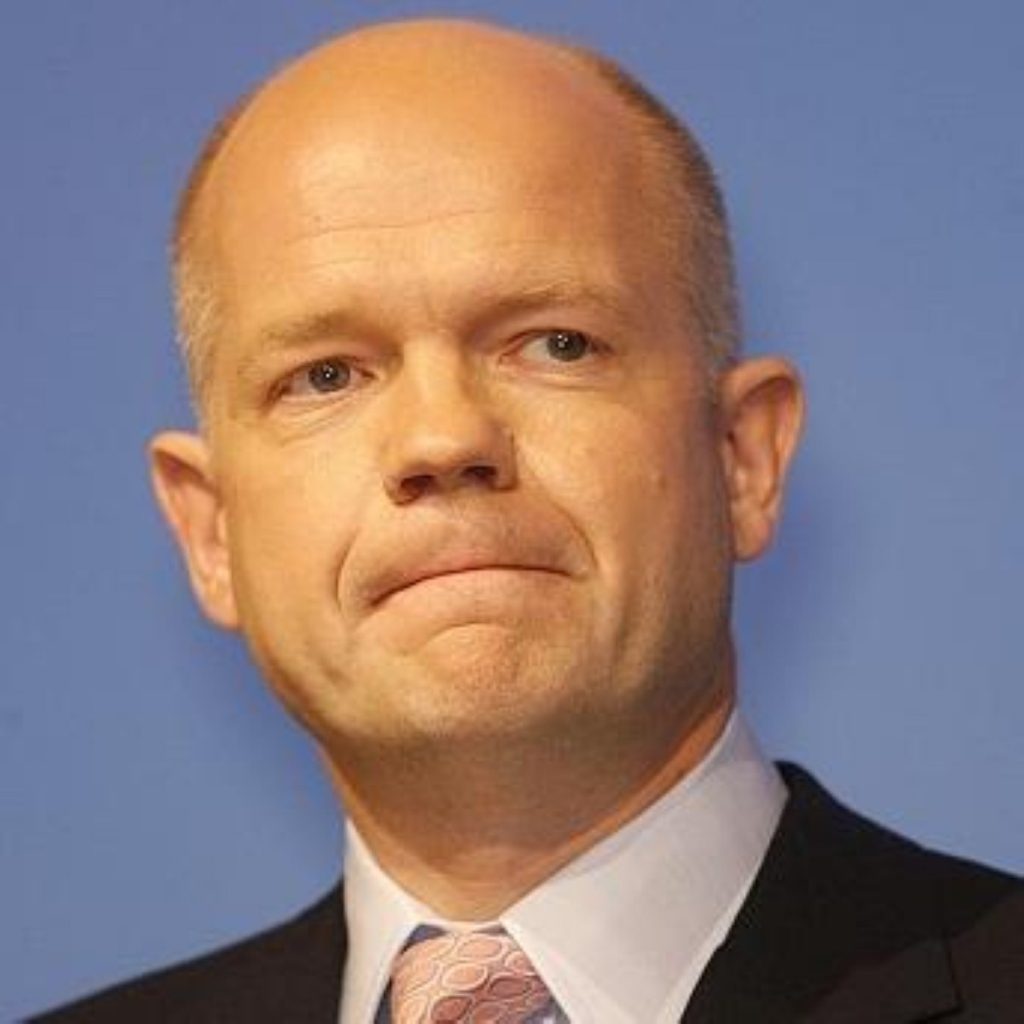Hague: Libyans should ‘organise transition’ from Gaddafi regime
By Ian Dunt
Any Libyan tired of Muammar Gaddafi’s rule should help organise the change of regime in Libya, the foreign secretary has said.
Speaking to the Commons after the fifth evening of bombing in the north African country, William Hague stressed that the British government was consolidating its links with the Libyan opposition.
“We call on all those who believe Colonel Gaddafi has led Libya into an impasse to begin to organise a transition,” he said.


Despite British claims that Colonel Gaddafi’s air force has been “totally disabled”, the dictator appears to retain his strategic advantage, with shells and snipers targeting the rebel-held city of Misrati.
Reports vary, but media sources estimated at least 17 civilians – including five children – were killed overnight. A rebel spokesman said tanks were rolling into the area.
Large explosions were heard in Tripoli, where the regime claimed several civilians had been killed. Western journalists based in the city said the authorities had failed to show them any evidence of casualties.
“The regimes actions strengthen our resolve to continue our current operation,” Mr Hague said.
“Our action is saving lives and protecting hundreds of thousands of civilians from the fate that otherwise would have awaited them.
“We are taking the utmost care to minimise the risk of civilian casualties. The only forces deliberately inflicting civilian casualties are the forces of the Gaddafi regime.”
Mr Hague insisted that the no-fly zone had now been secured, and moments after he updated the Commons ABC reported that a French fighter jet had shot down a single-engine Libyan Galeb plane.
Meanwhile, a Tory MP has lobbied for Colonel Gaddafi to be targeted, as reports spread that government forces were again in control of Misrata.
Former head of war crimes at the British Embassy in The Hague, Dominic Raab, wrote a compelling blog post arguing that Colonel Gaddafi could be legitimately targeted under paragraph nine of the UN resolution, which authorises “all necessary measures .to protect civilians and civilian populated areas under threat of attack”.
Mr Raab wrote: “If the removal of Gaddafi is necessary to stop the attacks on civilians, it falls within the scope of the resolution. That seems a reasonable working assumption, in the circumstances.
“Unsurprisingly, the definition further includes ‘combatant members of the enemy armed forces’. So, the key remaining question is: is Gaddafi actually making military decisions with operational consequences? Does anyone doubt it?
“By definition, discriminating in favour of senior commanders is not only permissible – it is desirable to minimise civilian (and coalition) casualties. Why should the top brass be immune from the military risks that foot soldiers face, especially in a dictatorship?” he added.
“If Gaddafi chooses to surrender, he should be detained with due process. But, as long as he retains ‘command responsibility’, he is a legitimate military target.”
Speaking at a public meeting today, David Cameron said: “It’s very important we don’t go beyond [the resolution] in any way.”
London and Washington continue to appear at odds over the issue of targeting the dictator, with the US keen to distance itself from the idea.

